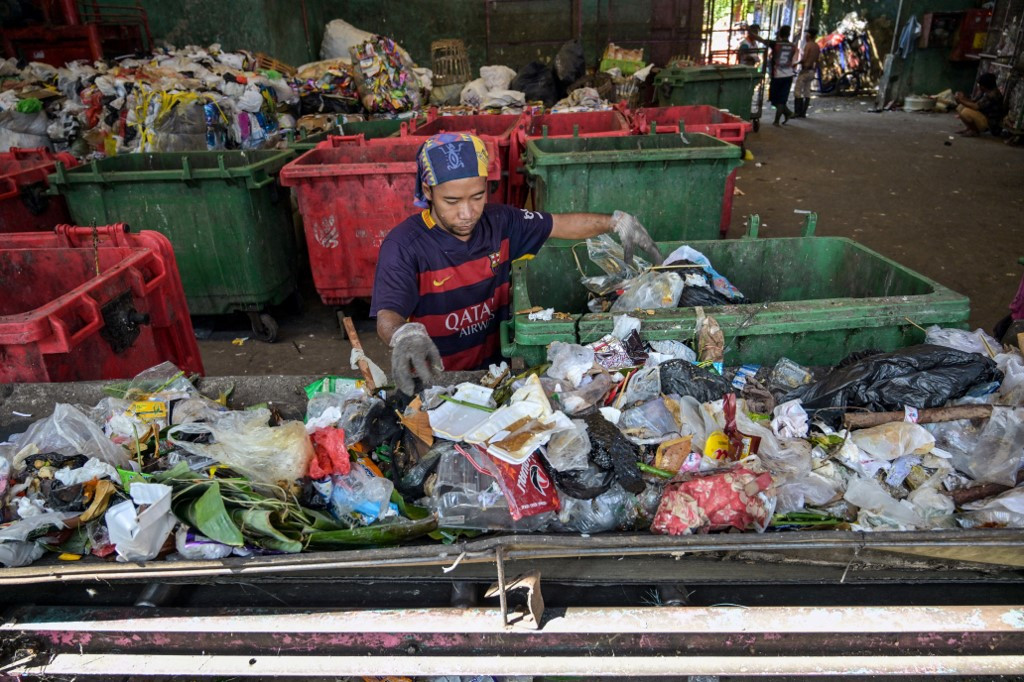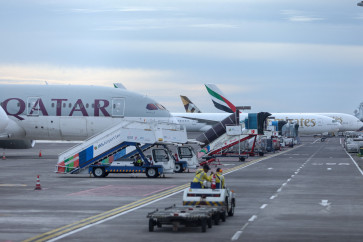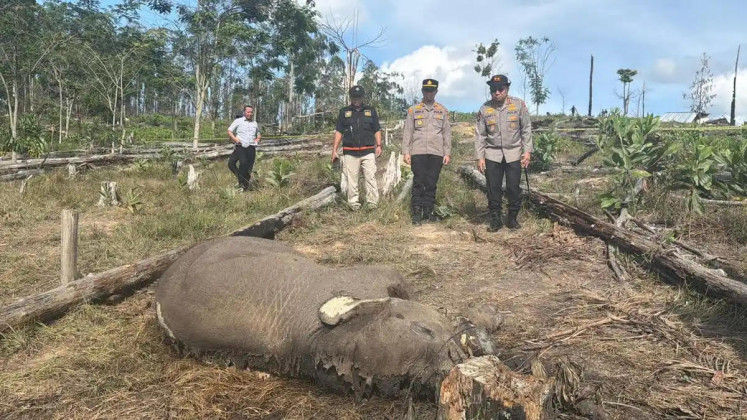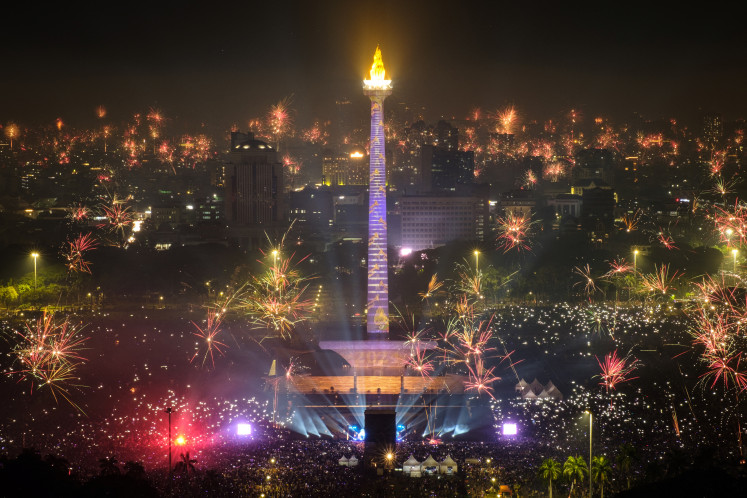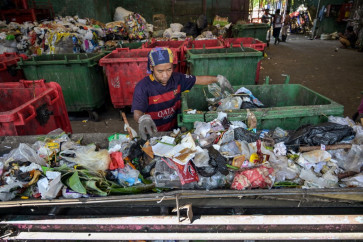Popular Reads
Top Results
Can't find what you're looking for?
View all search resultsPopular Reads
Top Results
Can't find what you're looking for?
View all search resultsIndonesia’s plastic waste policy slammed after failed treaty talks
Environment Minister Hanif Faisol Nurofiq claimed the government would push for tangible efforts to curb plastic pollution in the country despite the lack of a legally-binding global treaty on plastic waste, after negotiations to produce one in Geneva faltered.
Change text size
Gift Premium Articles
to Anyone
A
fter the negotiations for a global plastic treaty faltered, Indonesia has reiterated its commitment to fully manage plastic waste by 2029, a move environmentalists call insufficient without clear plans to stop plastic production and phase out toxic chemicals.
The 11-day United Nations talks in Geneva, Switzerland ended last week without issuing any legally binding agreement for member states, as countries divided into endorsing a “waste management only” approach or pursuing a more ambitious action of curbing plastic production.
Indonesia, which was among the countries in the first group during the Geneva negotiations, has announced its stance to continue to follow its national plastic waste plan by enhancing its multistakeholder partnership under the National Plastic Action Partnership (NPAP).
Established in 2020, the NPAP is a collaboration platform between the government, businesses, researchers and civic organizations to fast-track the circular economy to solve the plastic pollution problem.
“With or without a global treaty, Indonesia will continue to take concrete, measurable and inclusive steps to free the country from plastic pollution,” Environment Minister Hanif Faisol Nurofiq said during an NPAP meeting in Jakarta on Thursday.
At the meeting, which was mostly attended by businesses and donor organizations, Hanif underlined the need for a total of up to US$21 billion in investment to manage Indonesia’s plastic waste by 2029. The money would be used to fund numerous projects, including to build integrated waste disposal and processing sites, sanitary landfills and refuse-derived fuel (RDF) facilities.
Sanitary landfills refer to landfills where waste is buried to accelerate decomposition. Meanwhile, in an RDF facility, trash is sorted and processed into small pellets that would be used as an alternative fuel in cement production and coal-fired power plants.

